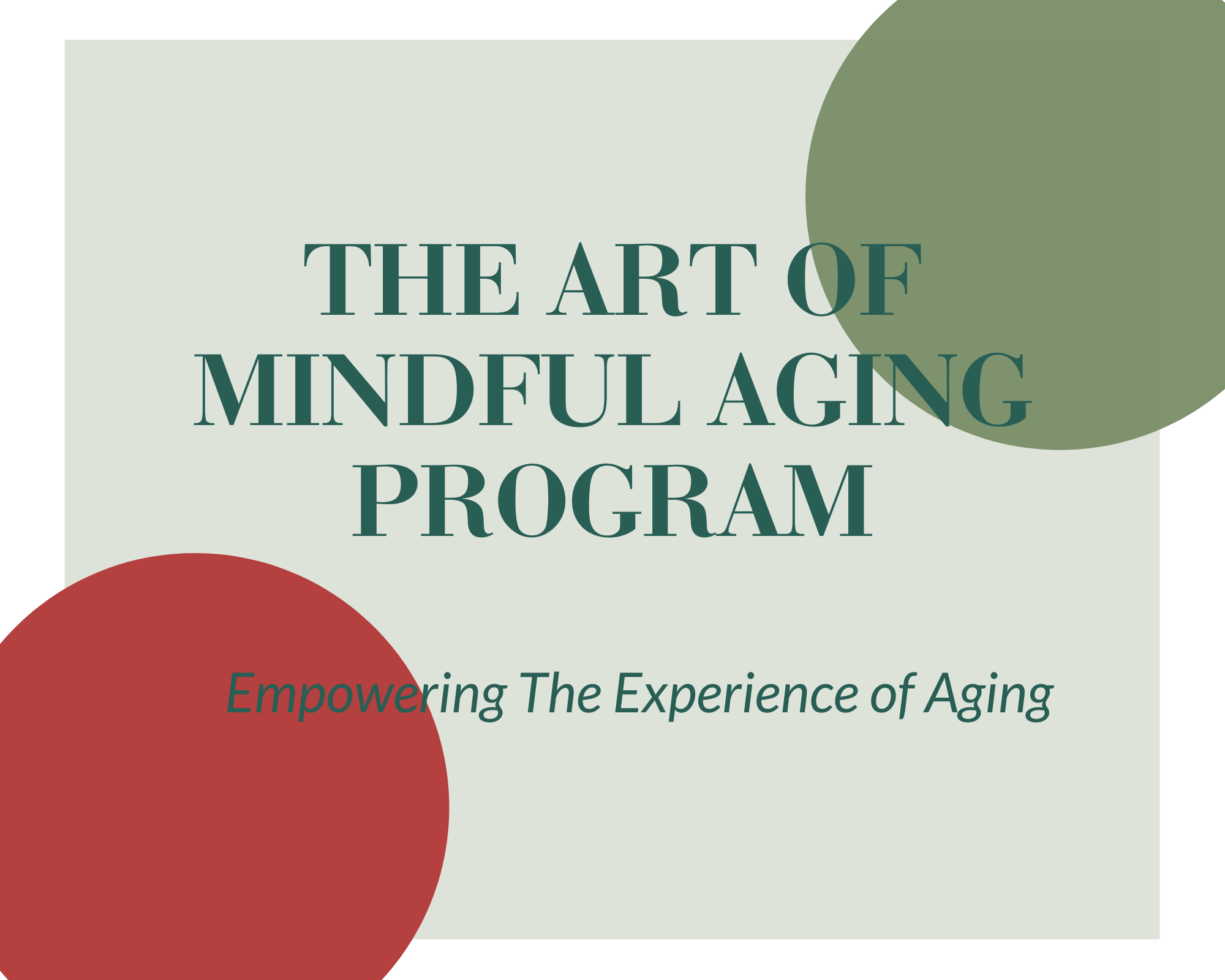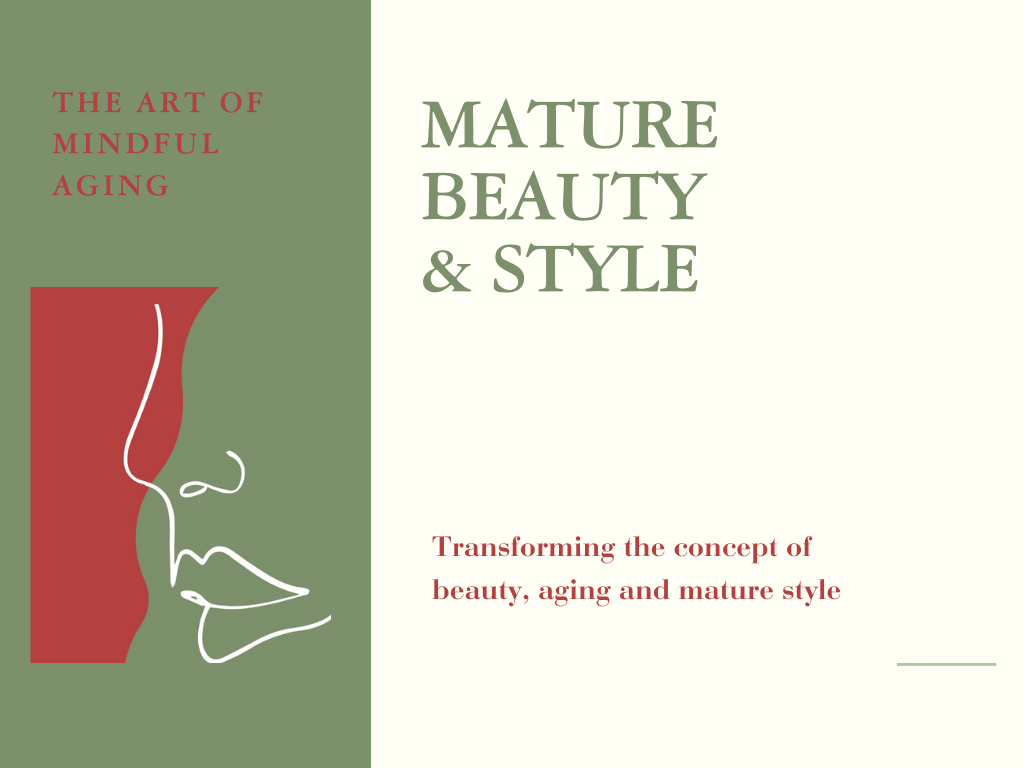Changing the Paradigm on Aging
The culture at large will remind us of our age, and how we should look, feel and behave as “mature” citizens. It is imperative that we create and maintain a vision for ourselves that supports us, our lifestyle and growing older. This course was specifically designed to help you empower your aging process.
You can look and feel fantastic as you age!
As our hair color, skin and body change, we must be prepared to make the shifts that will continue to highlight our beauty. This is a deep, soul-based desire for every woman, but our culture has made it an increasingly impossible goal, especially as a woman ages. With proper guidance and support, you can bypass the impossible standards of our culture and hit the gold your soul seeks and enjoy the pleasure and distinction of your Mature Beauty & Style!
Aging in Our Culture
We are given a “road map” for life from society, whether we realize it or not.
Although it can look different for different people, the concept is the same:
Education
Work
Get Married
Buy A Home
Start A Family
Settle into your life for the next 30 years
As we inch toward middle age and retirement, the social messages are less clear. We seemed to have dropped off society’s radar.
There is less interest in who we are, what we need and what we want.
The media does not positively portray aging.
It's the beginning of illness and degeneration.
For women, the message is it's the end of attractiveness.
For men, the message is your virility will diminish.
I consider this a big betrayal. We’ve been courted for 50 years, and then we’re dropped from consideration, despite our growing numbers and economic power!
Not unlike graduating from high school or college, aging is a new beginning built on knowledge acquired and cultivated skills in preparation for the next beginning.
Similar elements are in play as you age and retire, but unlike high school or college, you come with a lifetime of achievement, success, experience, knowledge, talents and skills. It is a journey into a different way of living and being than you have done in the past. It is a time of harvesting external and internal rewards. These are some very positive aspects of aging!
When society does give us a picture of what retirement is, along with aging, it is a “Madison Avenue” image.
Don’t get stuck there thinking
something is wrong with you.
Empowering The Experience of Growing Older
You are not alone!
Aging is global.
In the United States:
The number of Americans aged 45-64—who will reach 65 over the next two decades increased by nearly 15 percent between 2005 and 2015.
By 2050, the 65-plus group will climb to nearly 84 million, up from 43 million in 2012. Bureau of Labor Statistics, 3/3/16.
By 2040, adults 65 and older will account for more than one in five Americans, up from 15 percent in 2015. Administration on Aging, “A Profile on Older Americans.”
Some Myth Busters
67 percent of older adults use the Internet, up 55 percentage points in just under two decades.
Anderson and Perrin, Tech Adoption
Older People Can’t Learn New Skills
Mature adulthood now spans several decades. Older adults are diverse in age, ethnicity, physical ability, interests, and needs.
The Older Population is Monolithic
Four in 10 adults 65 and older own smartphones, more than double the share that did in 2013. Nearly seven in 10 use the Internet.
Anderson and Perrin, Tech Adoption
Older Adults Don’t Use Technology
Despite losses in speed and efficiency of processing new information, learning continues through the most advanced ages. Trends also show that cognitive decline is lessening in the modern era.
Laura Carstensen,“Our Aging Population – It May Just Save Us All,” in Paul Irving, The Upside of Aging: How Long Life is Changing the World of Health, Work, Innovation, Policy and Purpose (Hoboken: Wiley, 2014).
Older Minds Can’t Learn New Tasks
Most entrepreneurs are over 50. People in their 50s and 60s launch new businesses at nearly twice the rate of people in their 20s. Oxford Economics for AARP, “The Longevity Economy: Generating Economic Growth and New Opportunities for Business,” AARP, October 2013.
Older People Don’t Like to Try New Things
We become happier as we age, and the happiest people are women aged 65-79.
70 and Female is the New Cool, NY Times, Feb. 2019
Older People Are Sad
You must define for yourself what your aging and retirement is to look like, not just financially, but personally, emotionally, spiritually, socially, and physically.
Some Statistics on Working Beyond 65
More Americans 65 and older are working than at any time since the turn of the century and spending more time on the job than did their peers in earlier years.
A significant majority of U.S. boomers plan to work past age 65 or to not retire at all.
Among pre-retirees age 50-plus, nearly three in four say they want to keep working after they retire.
Globally, 57 percent of pre-retirees and retirees envision some form of work in retirement years.
About half of retirees follow nontraditional retirement paths. Many do not exit the labor force permanently, but move to temporary or part-time work.
The proportion of people in the working-age population worldwide who are 50 or older will grow from 20 percent in 2010 to 30 percent by 2050.
In Japan, with the world’s highest life expectancy and dwindling birth rates, more than half of men age 65-plus work, whether part- or full-time or in encore careers.
Source: Silver to Gold, The Business of Aging, Report from The Summit on Business and The Future of Aging, Milliken Institute, 2018
How much has society influenced how you think and feel about your aging?
“This increase in the life span and in the number of our senior citizens presents this nation with increased opportunities: the opportunity to draw upon their skill and sagacity—and the opportunity to provide the respect and recognition they have earned. It is not enough for a great nation merely to have added new years to life—our objective must also be to add new life to those years.”
~John F. Kennedy, message to Congress, Feb. 21, 1963
“There are six myths about old age:
- That it’s a disease, a disaster.
- That we are mindless.
- That we are sexless.
- That we are useless.
- That we are powerless.
- That we are all alike.”


